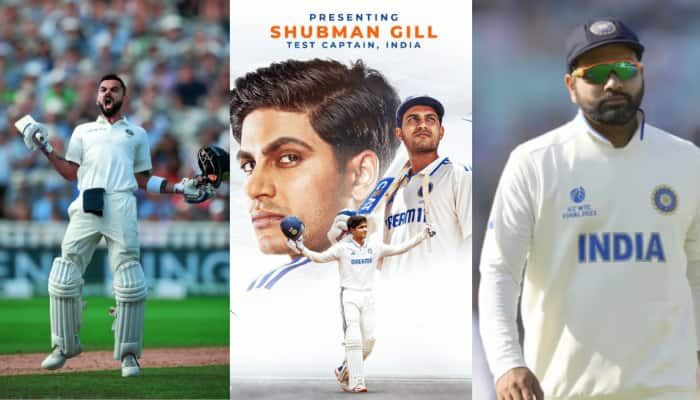The appointment of Shubman Gill as India’s new Test captain marks a defining moment in Indian cricket. With the legendary duo of Virat Kohli and Rohit Sharma retiring from red-ball cricket earlier this month, the responsibility of leading a cricket-obsessed nation into a new era falls on the young shoulders of a 25-year-old from Punjab. But is Gill truly the right choice to follow in the footsteps of two of India’s most impactful captains?
Gill’s temperament is one of his greatest assets. From his early days in the Under-19 World Cup to his composed debut series in Australia in 2020–21, Gill has shown a calmness under pressure that few young players possess. That composure will be vital as India transitions from the Kohli-Rohit era, which was defined by intensity and flair.
In contrast to Kohli’s fiery passion and Rohit’s composed authority, Gill brings a quiet confidence to the role. This difference in personality could help create a calmer dressing room environment as India rebuilds with fresh faces for the next World Test Championship (2025–2027) cycle.
Gill is not entirely new to leadership. He has led India A and captained Punjab in domestic cricket. While he lacks the extensive leadership experience of Kohli or Rohit, his sharp cricketing mind and respect within the dressing room work in his favor.
Virat Kohli captained India in 68 Tests and won 40 of them the most by any Indian skipper. Under his leadership, India transformed into a pace-heavy, aggressive unit that challenged teams in all conditions. Rohit Sharma, though less tenured, maintained the side’s high standards, leading India to the WTC final in 2023.
Gill, unlike his predecessors, will begin his captaincy stint with a team in transition no longer relying on the same senior core, but instead developing new leaders. His challenge isn’t just to win, but to build.
One concern is whether the pressure of captaincy might affect Gill’s batting. The history of Indian cricket has seen contrasting stories in this regard while Kohli’s batting thrived under pressure, others like Sachin Tendulkar found the leadership burden too great. Gill will have to ensure that his primary role as a top-order batsman doesn’t suffer under the weight of expectation.
India’s five-match Test series in England from June to August 2025 will be a critical test for Gill. It’s not just India’s first assignment in the new WTC cycle it’s also Gill’s first major leadership role abroad. Success or failure here could shape public and expert opinion on his long-term suitability as a leader.
Shubman Gill might not yet have the legacy or gravitas of Kohli and Rohit, but he embodies the promise of a future-forward Indian team. His selection as captain is not just about continuity, but vision building a leader who can grow alongside a new generation of Indian cricketers.
India has taken a calculated risk, betting on a young player with immense potential, rather than opting for a stop-gap senior. If nurtured well, Gill could prove to be the perfect bridge between India’s glorious past and a promising future.








